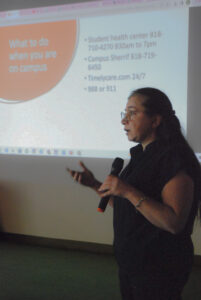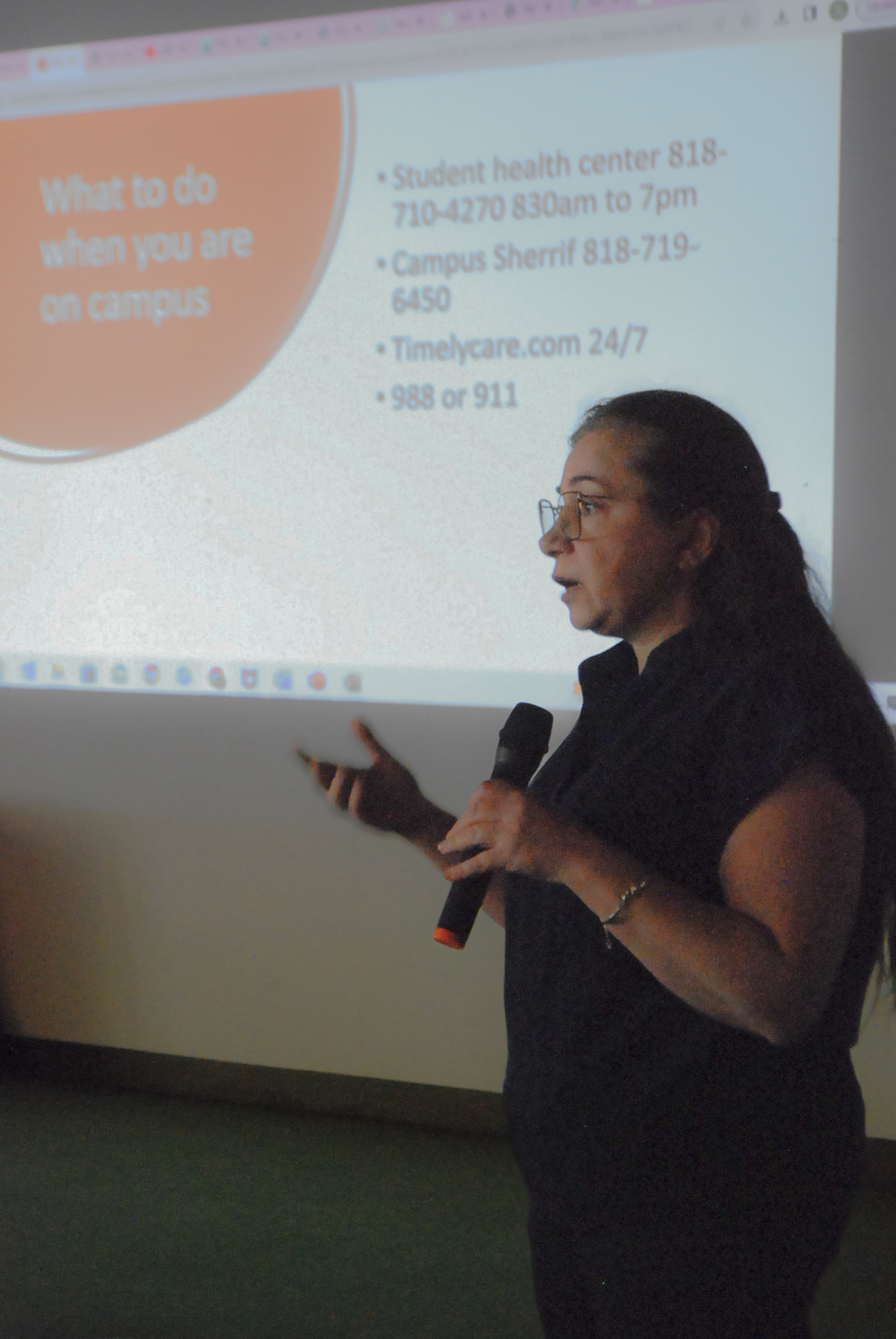When someone falls and hurts their ankle, people in the area tend to go and ask, “Are you OK?” “Is your foot OK?” But when seeing someone down or depressed, people are more hesitant to reach out and ask, “Are you feeling OK?”
And it’s OK to ask.
“Sometimes, that’s all it takes,” Student Health Center Director Houry Tanashian said.
With this comparison during a Suicide Awareness and Prevention Workshop in the Multicultural Center, Tanashian was elaborating on the example of Kevin Hines, a suicide prevention speaker whose name and story was mentioned during the workshop, that had been brought up during the presentation.
Hines, who jumped off the Golden Gate bridge—and survived—is certain he would not have jumped if another person in the vicinity had reached out to ask if he was OK, according to an article in the U.S. Coast Guard news site.
The September workshop, taking place during National Suicide Prevention Month, was organized by both Tanashian and Student Health Center Clinical Psychologist Amy Snyder. A few slides in the 30-minute presentation, including “What do we know about suicide?” and “What to do,” came from Didi Hirsch Mental Health Services, which Snyder said created the first suicide prevention crisis line.
Snyder covered many topics such as life factors found to contribute to suicides, mental health conditions associated with suicides, knowing what signs to look for and how to help. A five-step safety plan included warning signs of a crisis developing, internal coping strategies, people who can provide distraction, social settings and places that also provide distraction and people that help can be asked of.

Toward the end, two scenarios were laid out, and attendees had a chance to contribute their ideas and discuss how they would approach each situation.
After listening to one scenario, in which one comes across a student crying on the steps of the library with a bottle of pills in her possession and a handful in her hand, one attendee voiced that they would reach out to speak with her and walk her to the Student Health Center.
One of the ideas another attendee commented on is that they would sit next to her, talk and listen to her to try to calm things down, letting her know someone is there alongside.
Both Snyder and Tanashian noted that suicide has seemed to increase. After suicide deaths declined in 2019 and 2020, they increased by about 5 percent in 2021 and 2.6 percent in 2022, according to an August 2023 statement published by the Centers for Disease Control.
“It’s very important for all of us to know about it because it’s affecting everybody—the rich, the poor, the student, the old, everybody,” Tanashian said. “And it’s one of those important topics that is very heavy and nobody wants to discuss. In an educational setting, I think all of us need to be involved in awareness and prevention.”
Tanashian aimed for those who attended the workshop to have learned one new thing.
“I’m hoping they learned—even if it’s one thing—I hope they learned some courage,” Tanashian said. “How to ask a person if they’re worried about them, if they’re OK, sometimes that’s all it takes. We don’t want everybody to learn everything, but even if it’s something simple that they can lend a helping hand to another friend or a student, that’s what we hope for.”
Sociology major Marjan Sharifi, who is part of an ASO committee that deals with student health, attended the workshop to show solidarity with both the committee and with student health and found it educational.
“I think as a student body, we have to have this kind of information and this kind of training because if you have a classmate or a close friend that’s going through something, it’s good to be able to be there for them,” Sharifi said.
Moving forward, the Student Health Center would like to organize regular workshops on a range of other topics, including ones on emotional intelligence and coping skills, Snyder said.
If you or anyone you know is in crisis, call or text 988 to reach the Suicide and Crisis Lifeline or chat live at 988lifeline.org.




